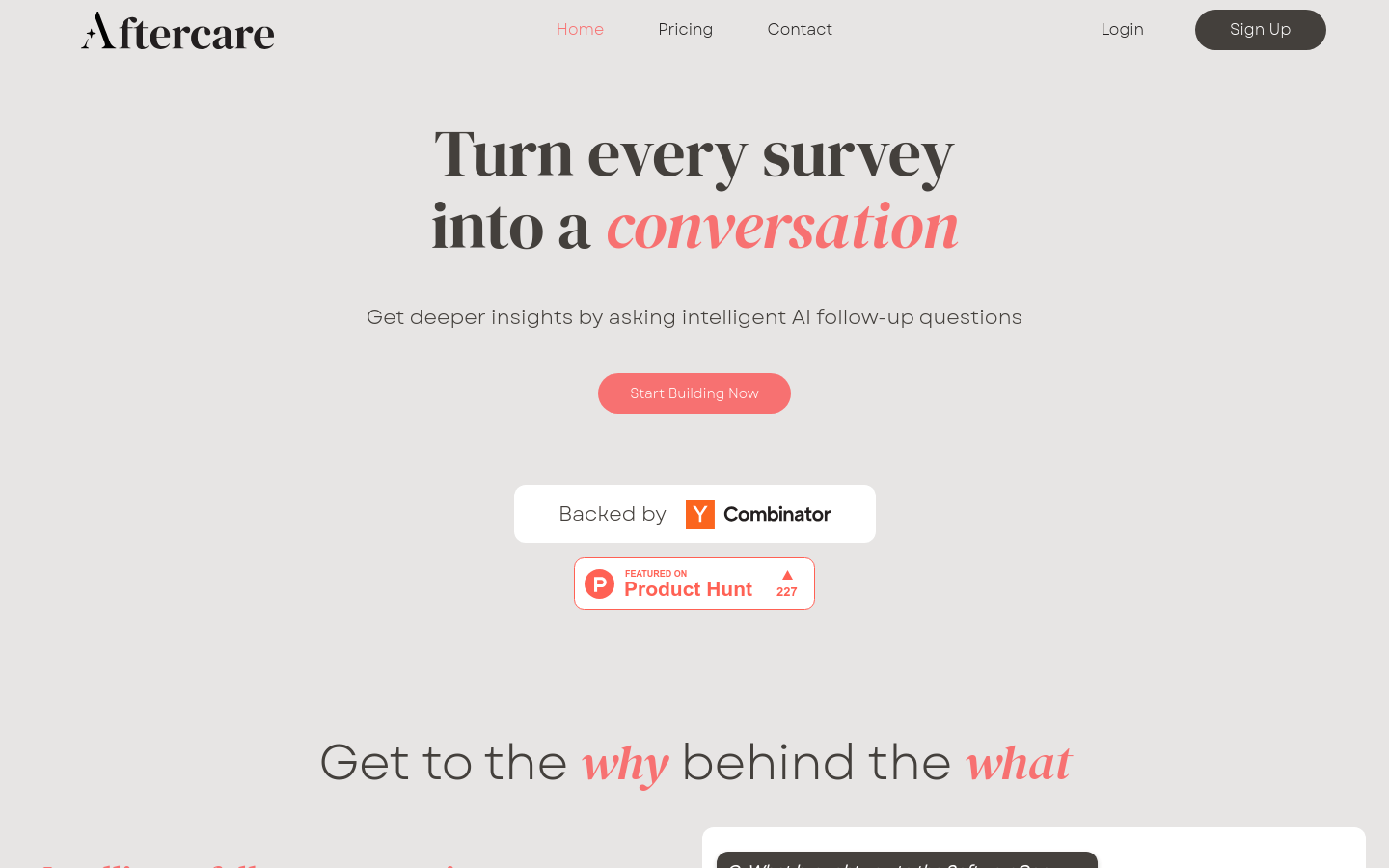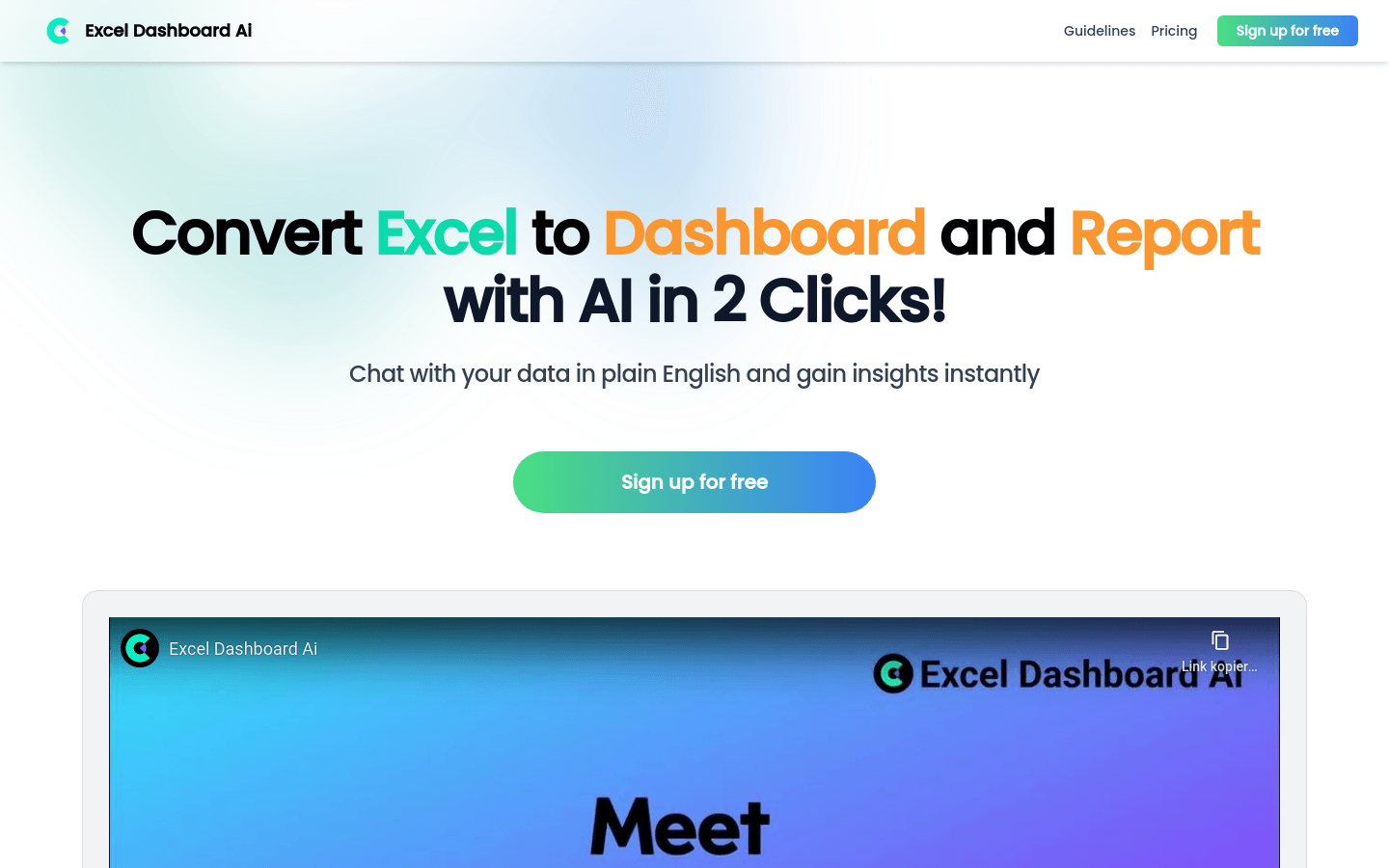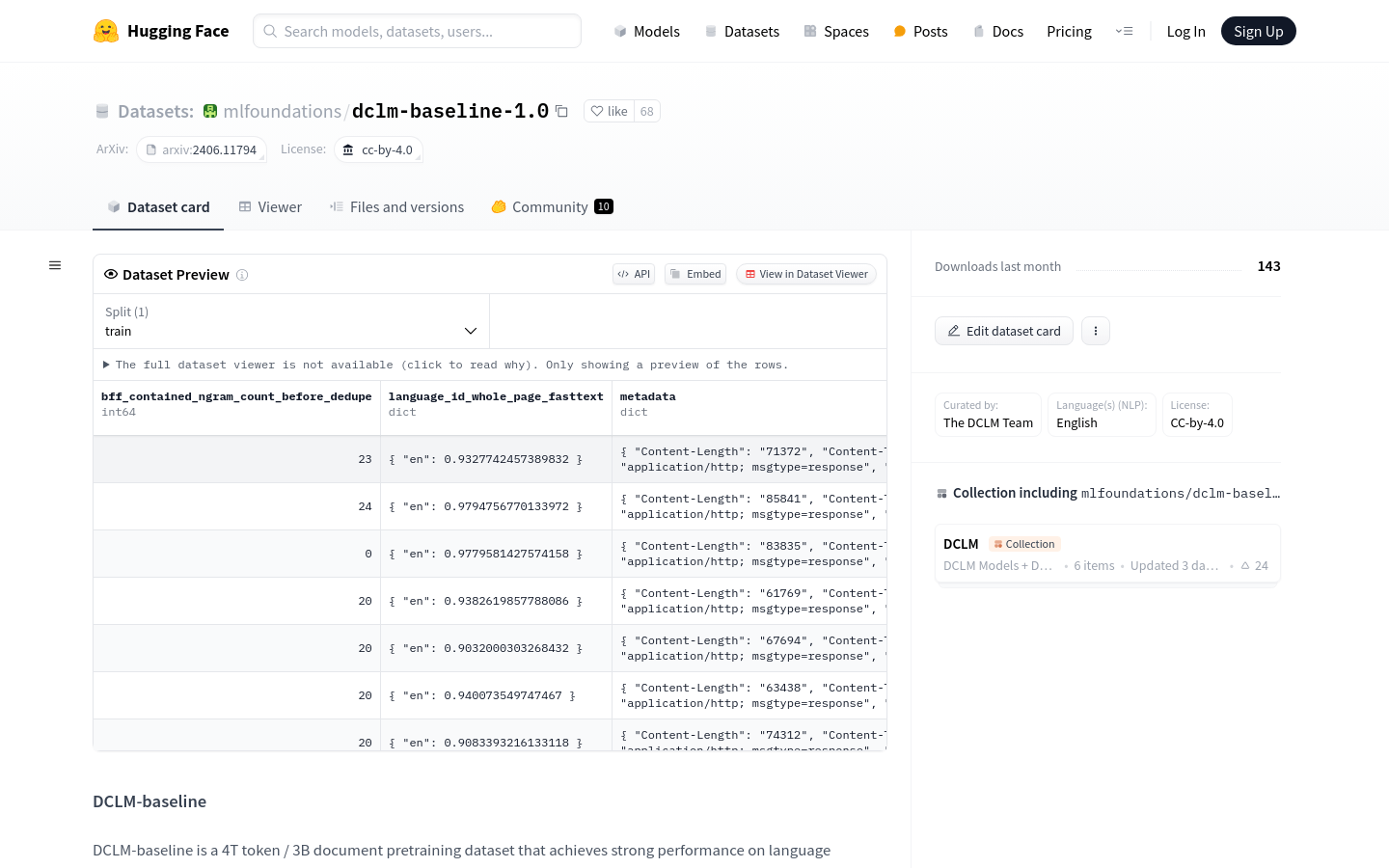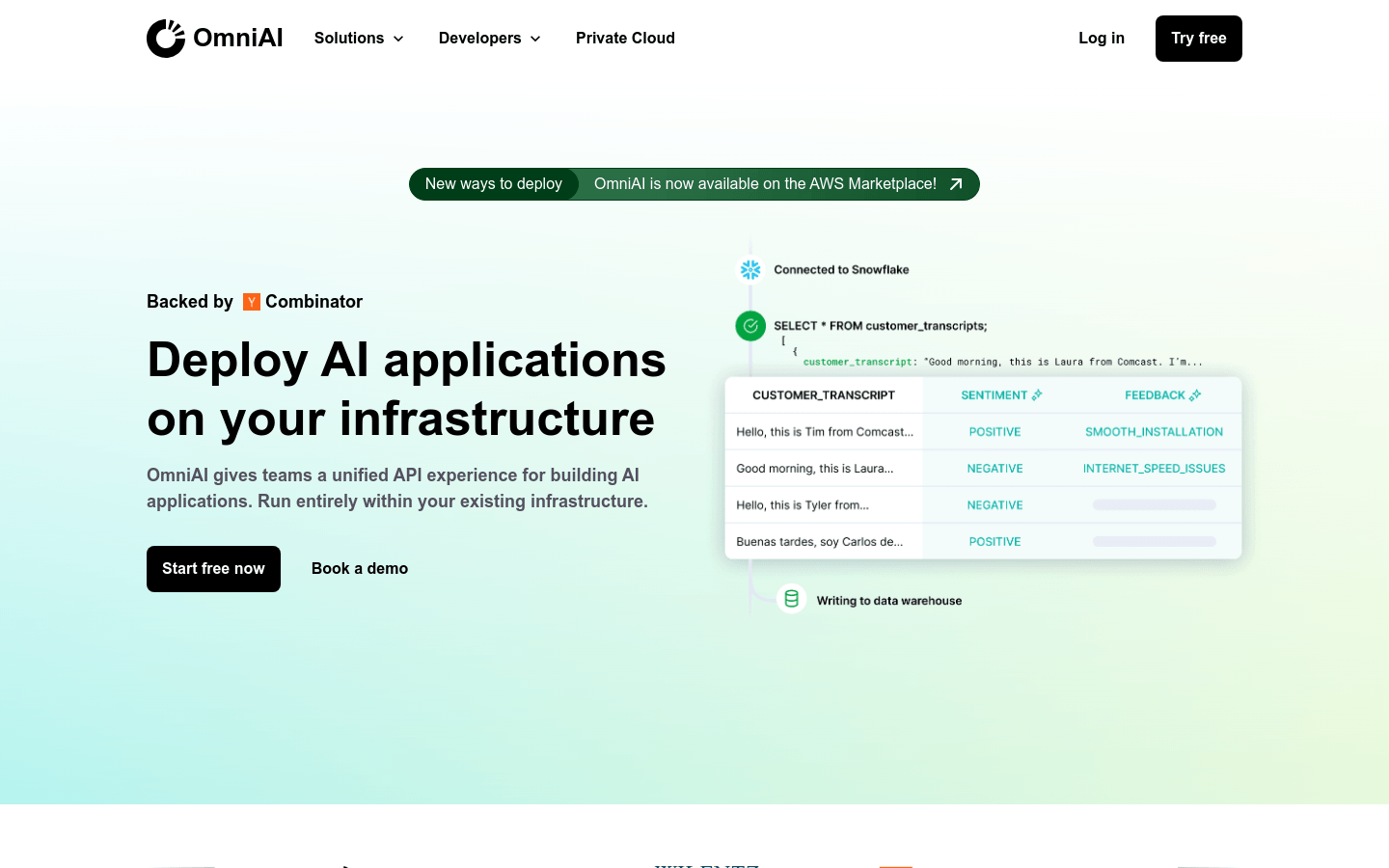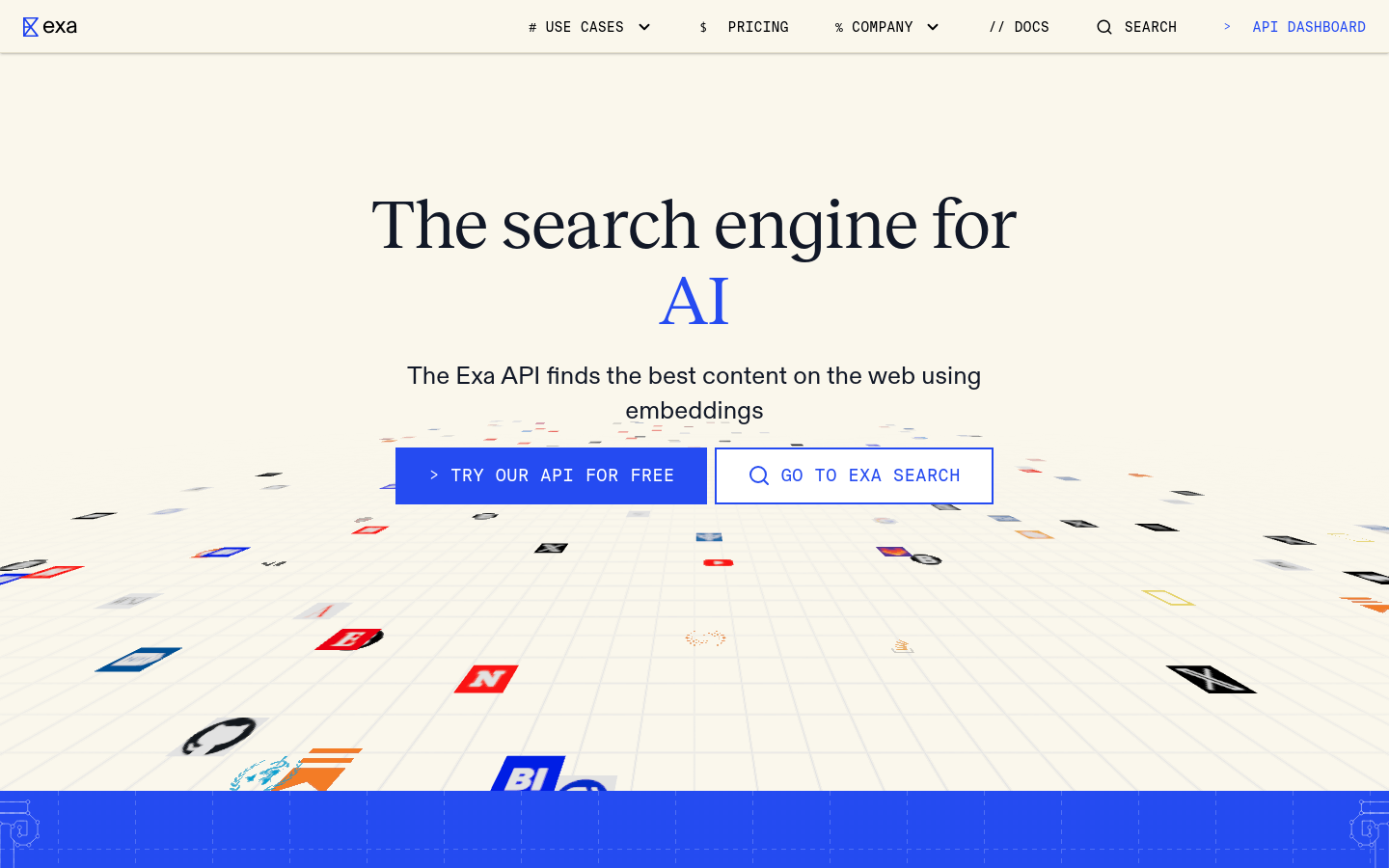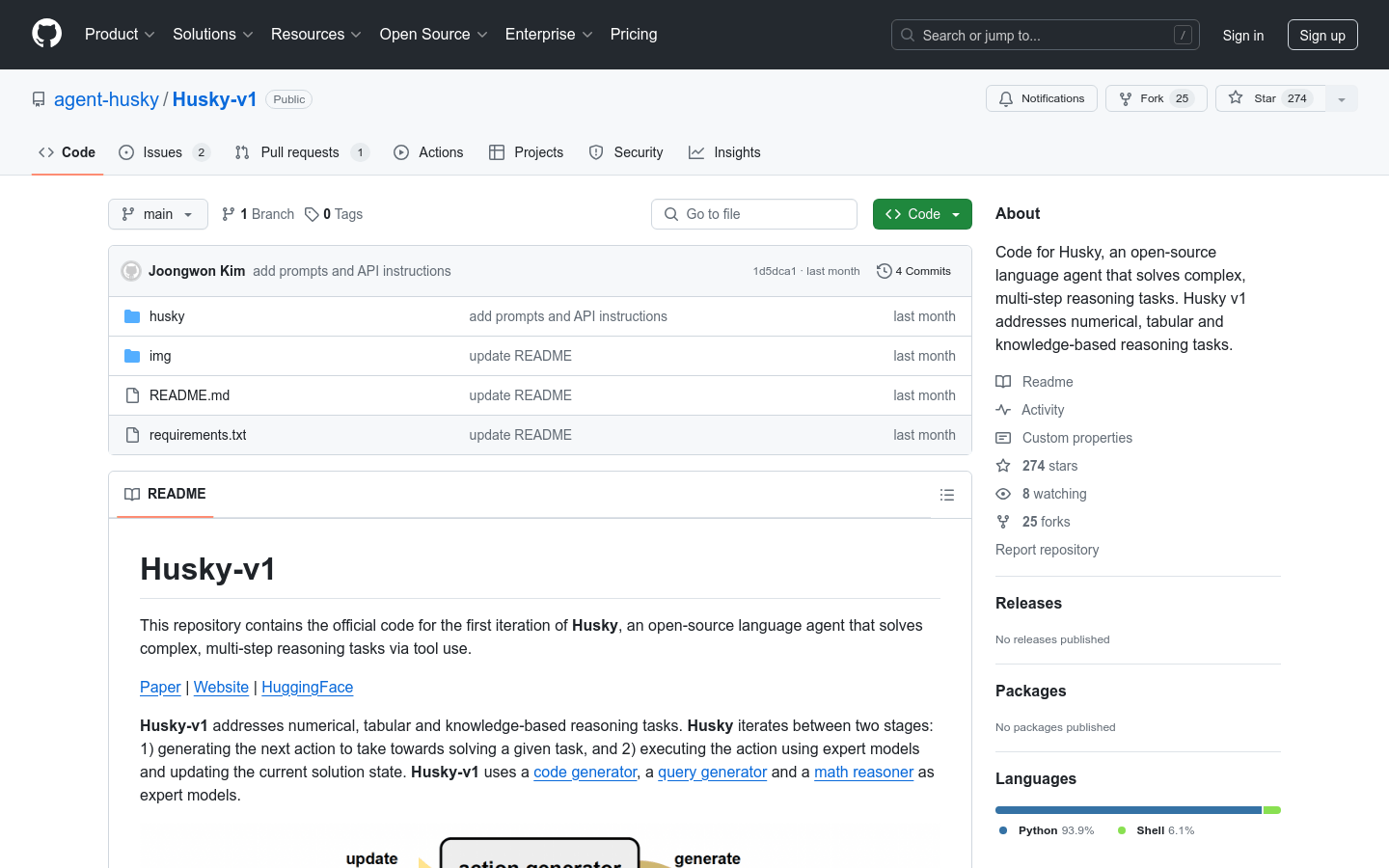
What is Husky-v1?
Husky-v1 is an open-source language agent model that specializes in handling complex multi-step reasoning tasks involving numerical data, tables, and knowledge-based information. This model employs expert systems such as tool usage, code generators, query builders, and mathematical reasoners to perform these tasks. It supports CUDA 11.8 and requires downloading specific model files. The model can run all expert systems in parallel through an optimized inference process.
Who can benefit from using Husky-v1?
Researchers and developers in fields like artificial intelligence, machine learning, and data science can benefit from Husky-v1. It helps automate reasoning processes, improving the efficiency and accuracy of data analysis.
In what scenarios can Husky-v1 be used?
Academic research: Analyzing large datasets to extract valuable insights.
Enterprise use: Assisting data scientists with complex data analysis and forecasting.
Educational purposes: Helping students understand complex data reasoning processes.
What are the key features of Husky-v1?
Solves complex multi-step reasoning tasks.
Uses expert models including tool usage, code generators, query builders, and mathematical reasoners.
Supports CUDA 11.8; download the required model files.
Runs all expert models in parallel via an optimized inference process.
Stores inference results in JSON format.
Includes evaluation scripts for assessing model performance.
How do you use Husky-v1?
1. Visit the Husky-v1 GitHub page and clone or download the code.
2. Install necessary dependencies according to the README document.
3. Download the associated model files from HuggingFace.
4. Modify the script’s MODELID and DATASETNAME properties for your specific task.
5. Run the five expert models in parallel.
6. Use provided evaluation scripts to assess the model’s performance.
7. Analyze the results and adjust model parameters as needed to optimize performance.
AI tools are software or platforms that use artificial intelligence to automate tasks.
AI tools are widely used in many industries, including but not limited to healthcare, finance, education, retail, manufacturing, logistics, entertainment, and technology development.?
Some AI tools require certain programming skills, especially those used for machine learning, deep learning, and developing custom solutions.
Many AI tools support integration with third-party software, especially in enterprise applications.
Many AI tools support multiple languages, especially those for international markets.

